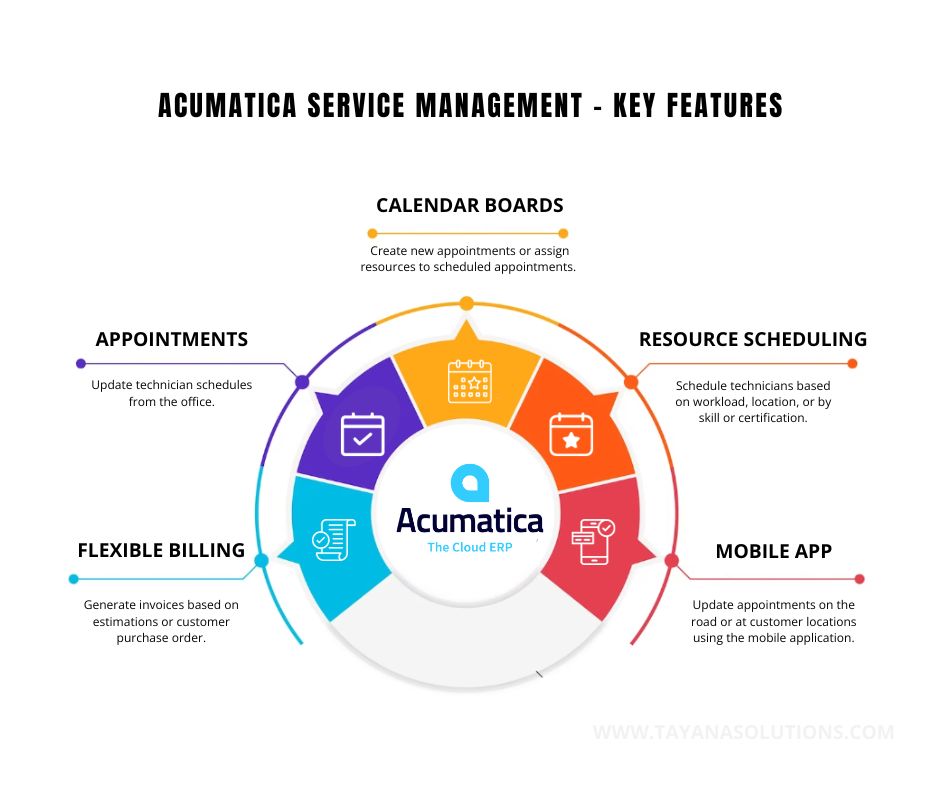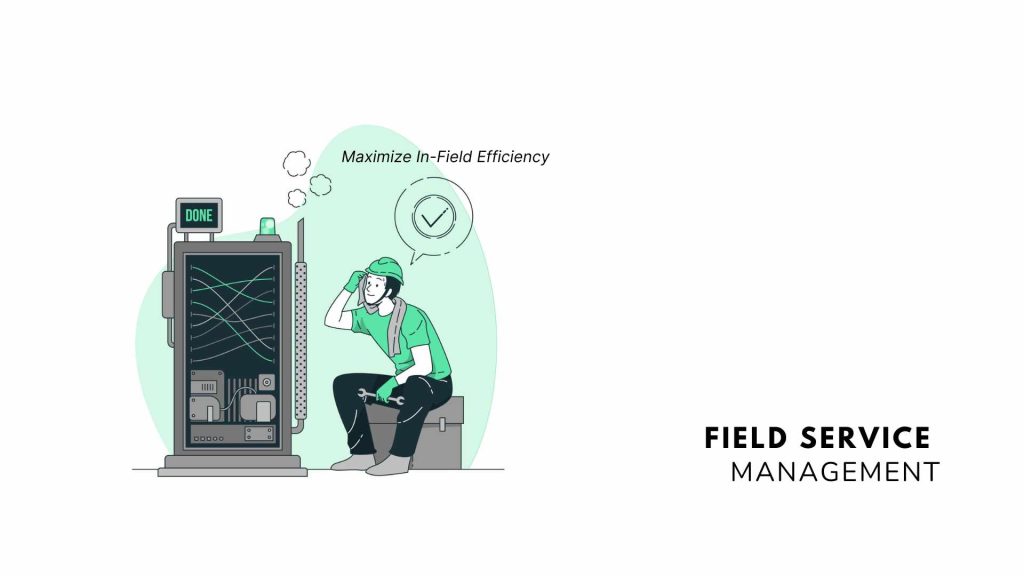Field Service Management (FSM) refers to the efficient coordination and management of a company’s resources, including service technicians, work orders, scheduling, dispatch, and tracking of field operations to ensure timely and quality service delivery. It involves overseeing tasks outside a company’s premises, such as installations, repairs, maintenance, or deliveries.
What is Field Service Management?
Field Service Management (FSM) refers to the strategic coordination and oversight of a company’s off-site operations, encompassing the planning, scheduling, dispatching, and monitoring of field service activities. It includes mobile workers or technicians performing tasks at customer locations, such as installations, repairs, maintenance, and deliveries.
FSM solutions streamline the process, from organizing work orders to dispatching agents, ensuring efficient resource allocation and timely service delivery. Using technology and software, FSM optimizes operational efficiency, enhances customer satisfaction. And improves overall service quality by providing real-time visibility and control over field operations.
Field service management involves a range of activities:
- Scheduling service orders: Efficiently organizing service requests, prioritizing tasks. And assigning them to the appropriate field agents based on skills, availability, and location.
- Dispatching agents to the field: Sending field service agents equipped with the necessary tools and information to execute tasks at customer locations.
- Tracking agents’ whereabouts: Monitoring the location and movement of field service agents in real-time to optimize routes and ensure timely arrivals.
- Tracking the status of jobs: Monitoring the progress of tasks, ensuring completion within specified timelines, and maintaining communication between agents and the central system.
Field Service Management for Managed Service Providers
FSM holds substantial importance for Managed Service Providers (MSPs) as it offers a comprehensive framework for organizing and optimizing their field operations. MSPs often handle multifaceted service contracts across diverse clients, requiring effective coordination of resources, scheduling, and dispatch of field technicians.
FSM solutions tailored for MSPs facilitate streamlined workflows, allowing real-time visibility into technician activities, ensuring timely service delivery, and maintaining service quality standards. These platforms enable MSPs to efficiently manage multiple clients’ needs, handle varying service requirements, and maintain consistent service excellence.
FSM for MSPs integrates scheduling, dispatch, inventory management, and reporting, providing a centralized system to enhance operational efficiency and customer satisfaction, strengthening their position in the competitive service market.
Field Service Management Challenges
Field Service Management (FSM) faces several significant challenges that impact operational efficiency and service quality. These challenges include:
- Optimizing Scheduling and Routing: Efficiently scheduling and routing field service technicians to various locations while considering factors like travel time, traffic conditions, and skill requirements poses a challenge. Balancing workload distribution and minimizing travel time remains a constant challenge for FSM managers.
- Unforeseen Changes and Interruptions: Field operations are susceptible to unexpected disruptions such as equipment malfunctions, sudden service requests, or weather-related issues. Adapting to and managing these unpredictable changes without affecting service delivery schedules poses a challenge.
- Inventory and Resource Management: Managing and optimizing inventory levels of spare parts, tools, and equipment required for field tasks can be complex. Ensuring technicians have the right resources available at the right time without excessive stockpiling is challenging.
- Maintaining Consistent Service Quality: Ensuring uniform service quality across diverse locations and various technicians is challenging. It involves ongoing training, monitoring, and quality control to maintain consistent service standards and meet customer expectations.
Managing these challenges is critical to providing the seamless execution of field service operations and maintaining high levels of customer satisfaction.
Benefits of Field Service Management
FSM offers numerous benefits, including
- Increased productivity
- Enhanced customer satisfaction.
- Reduced operational costs.
- Optimized resource allocation.
- Improved first-time fix rates.
- Better overall operating efficiency.
Field Service Management Best Practices
Best practices in FSM involve employing efficient scheduling algorithms, providing technicians with mobile tools and resources. And continuous training for technicians, fostering transparent communication between field agents and the central system, and proactive maintenance to prevent service interruptions.
Important Field Service Management KPIs and Metrics
Key Performance Indicators (KPIs) and metrics in FSM include First-Time Fix Rate, Mean Time to Repair (MTTR), Technician Utilization, Service Level Agreement (SLA) Compliance, Customer Satisfaction, and Overall Equipment Effectiveness (OEE).
The Future of Field Service Management
The future of FSM involves the integration of cutting-edge technologies such as Augmented Reality (AR), Artificial Intelligence, and predictive analytics to streamline operations, improve predictive maintenance, and enhance customer experiences.

How Acumatica Can Enhance?
Acumatica Field Service Management offers a comprehensive solution that can significantly enhance businesses by optimizing field operations. Acumatica FSM ensures efficient resource allocation, timely service delivery. And improved customer satisfaction through its robust features, including intelligent scheduling, real-time updates, and streamlined communication.
The platform’s integration capabilities with other business systems and its ability to provide actionable insights through data analysis. And further empowers businesses to make informed decisions, reduce operational costs, and drive productivity. Acumatica FSM catalyzes enhanced operational efficiency. Leading to better service quality and a competitive edge for businesses in the field service industry.
FAQs
Q1: What industries benefit from FSM?
A1: Industries like telecommunications, utilities, healthcare, manufacturing, and home services benefit significantly from FSM.
Q2: How does FSM improve customer satisfaction?
A2: FSM ensures prompt and efficient service delivery, reduces wait times. And enhances communication between service providers and customers, improving satisfaction.
Q3: Can FSM software be integrated with other business systems?
A3: Yes, modern FSM solutions offer integration capabilities with CRM, ERP. And other business systems for seamless data flow and process optimization.

Vijay comes with a vast experience in ERP and enterprise solutions space with about 20 years of experience in various packaged application like Acumatica, SAP, Orion, Salesforce.com, SugarCRM and, SalesLogix.

